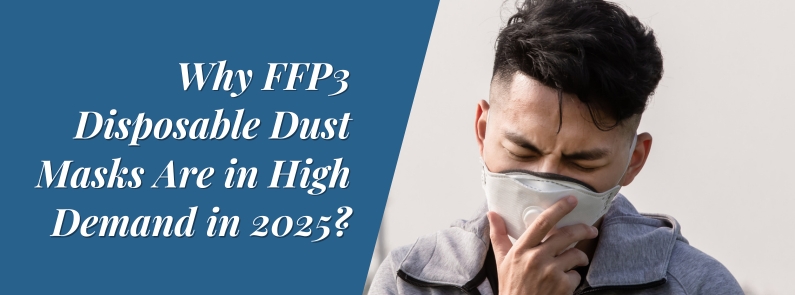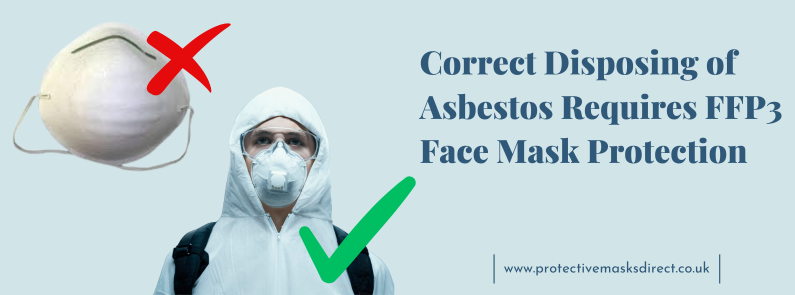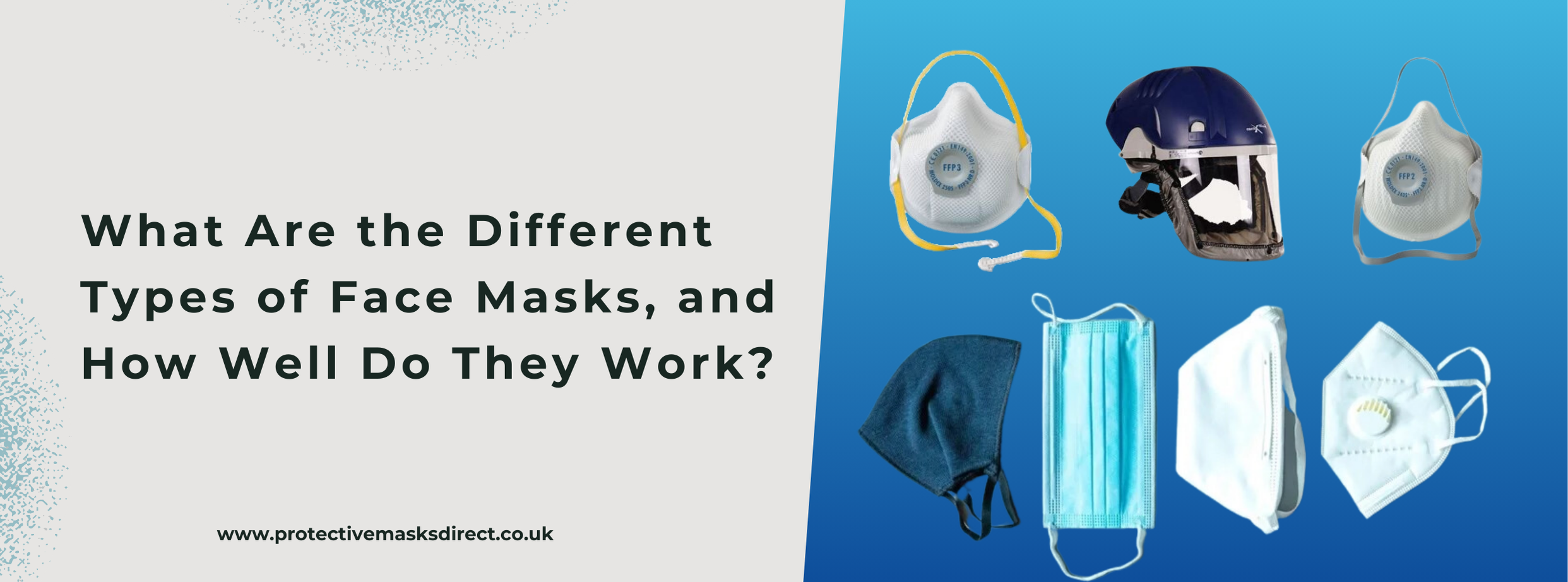
In 2025, the increased demand for FFP3 face masks will raise prices, particularly in sectors like construction, where workers face persistent exposure to fine silica dust, and in healthcare settings, where professionals combat airborne pathogens.
These environments necessitate the highest level of respiratory protection, as even a minor lapse can lead to severe respiratory illnesses or the brutal transmission of infectious diseases. The heightened awareness of occupational respiratory safety, accelerated by the pandemic, has further amplified the adoption of advanced filtration masks.
According to the Health and Safety Executive (HSE) report from 2024, airborne hazards are responsible for approximately 13,000 deaths annually in the UK. FFP3 masks, with a filtration efficiency for particles as small as 0.3 microns, act as a shield against hazardous aerosols, fine dust, and biological contaminants.
How FFP3 Face Masks Work?
FFP3 masks offer a technologically advanced filtration system that captures even the smallest particulates. Unlike regular dust masks that rely on passive filtration, these masks create a tight seal, utilizing their multi-layered fabric and electrostatically charged filters to trap microscopic particles.
Their valve technology further reduces moisture and heat build-up, preventing discomfort during extended wear. FFP3 masks do not require external power or bulky equipment, like air-fed mask system. This makes them highly portable and ideal for environments where constant movement is required.
For individuals exposed to volatile organic compounds (VOCs), toxic gases, or hazardous particulates, these masks provide critical defense. While air-fed masks are beneficial in scenarios like asbestos removal and chemical processing, FFP3 masks offer optimal protection in high-dust industrial settings, healthcare facilities, and construction zones.
Why FFP3 Face Masks Are Essential in 2025: Top 5 Reasons
The rising preference for FFP3 disposable dust masks in 2025 is largely driven by heightened awareness of respiratory safety, stringent occupational safety regulations, and increasing exposure to hazardous particles. Various industries rely on these masks to ensure legal compliance while protecting their workforce from health risks.
Increased Filtration Efficiency of FFP3 Masks
FFP3 masks surpass most other disposable masks in filtration capacity. With a 99% advanced filtration efficiency, they capture hazardous particles as small as 0.3 microns. Their superior electrostatic filter technology not only removes dust and smoke but also defends against ultrafine aerosols. Workers in construction and chemical plants benefit from this specialized filtration, significantly lowering their exposure to particulate pollution.
Protection Against Toxic Dust and Fumes
Sectors involving metal fabrication, mining, and woodworking release harmful dust and fumes, putting workers at risk of chronic respiratory diseases. FFP3 masks protect against these occupational hazards using advanced filter media that block fine particulate matter, preventing it from reaching the lungs. Unlike basic dust masks, these high-grade respirators offer long-term respiratory protection even in poorly ventilated spaces.
Increased Usage Due to Global Health Concerns
FFP3 masks gained prominence not only in workplaces but also in personal settings. The pandemic heightened public awareness about airborne virus transmission, leading to widespread use of medical-grade masks. With advanced particle filtration, FFP3 masks protect against pathogens and allergens, offering unmatched respiratory safety for medical professionals and immunocompromised individuals. Additionally, as pollution levels rise, people living in urban areas increasingly rely on these masks for everyday protection.
Convenience and Comfort for Long Shifts
Designed for extended wear, FFP3 masks prioritize user comfort with minimal breathing resistance. Many models feature exhalation valves that reduce heat build-up, preventing fogging of eyewear. Unlike reusable respirators, they require no maintenance, making them convenient for workers in manufacturing, construction, and laboratories. The lightweight design also ensures professionals can stay protected during long shifts without experiencing fatigue.
Compliance with Workplace Safety Standards
FFP3 masks meet the stringent European EN 149 safety standards, offering assured respiratory protection. Employers are legally required to supply high-grade masks for personnel exposed to hazardous air quality. These masks are subject to fit testing and leak detection assessments, confirming they provide effective defense. As regulatory bodies enforce stricter safety measures, the use of FFP3 masks has expanded across industries, ensuring compliance while safeguarding worker health.
Stay Safe with FFP3 Disposable Dust Masks
FFP3 masks are an indispensable choice for individuals working in toxic environments. Whether on construction sites, in healthcare facilities, or in chemical processing plants, these masks provide exceptional respiratory protection. If you're searching for reliable protection, explore a wide range of FFP3-certified masks available at Protective Masks Direct and prioritize your respiratory health with the best available safety solutions.




